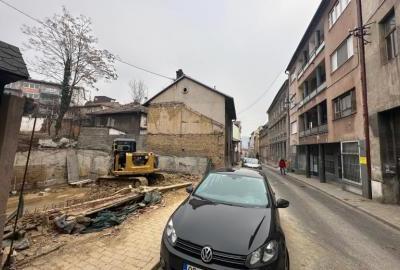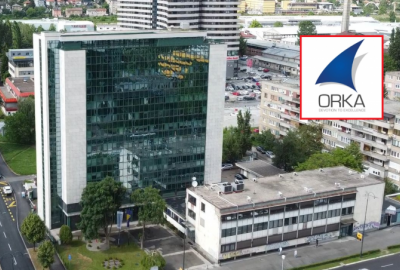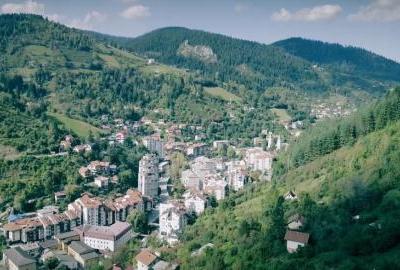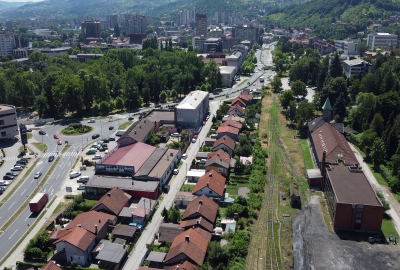Žurnal in English
Mine in Sanski Most: Lager Company Profits While Polluting Land and Water for Residents
After the Sanski Most Municipal Council rescinded its approval and called for the revocation of Lager's mining concession, cantonal and federal ministries confirmed that the company is operating within legal parameters, dismissing any grounds for cancelling the concession. Despite this, Lager’s activities continue to impact local communities negatively, polluting water sources, breaching its own concession agreements, and exceeding its authorised operations. Residents of nearby villages, who declined to sell their land to the mining company, are now left to defend their property independently.
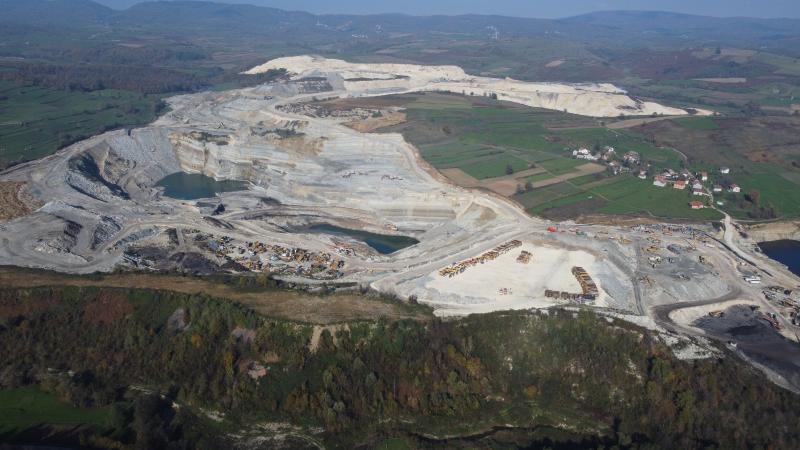
Enes Tatarević is one of 20 farmers living and working in villages near the Lager company's mine in Sanski Most. His family, like many other locals, owns land within the Lager Mine concession area. Tatarević and numerous villagers who refused to sell their land to Lager now bear the consequences that threaten their property and livelihoods.
“We’ll be forced, by circumstance, to move from here; in a few years, there will be no way for anyone to survive here. We’re not just threatened; we’re crushed", Tatarević says as he guides us through the Lager mine pits to his land.
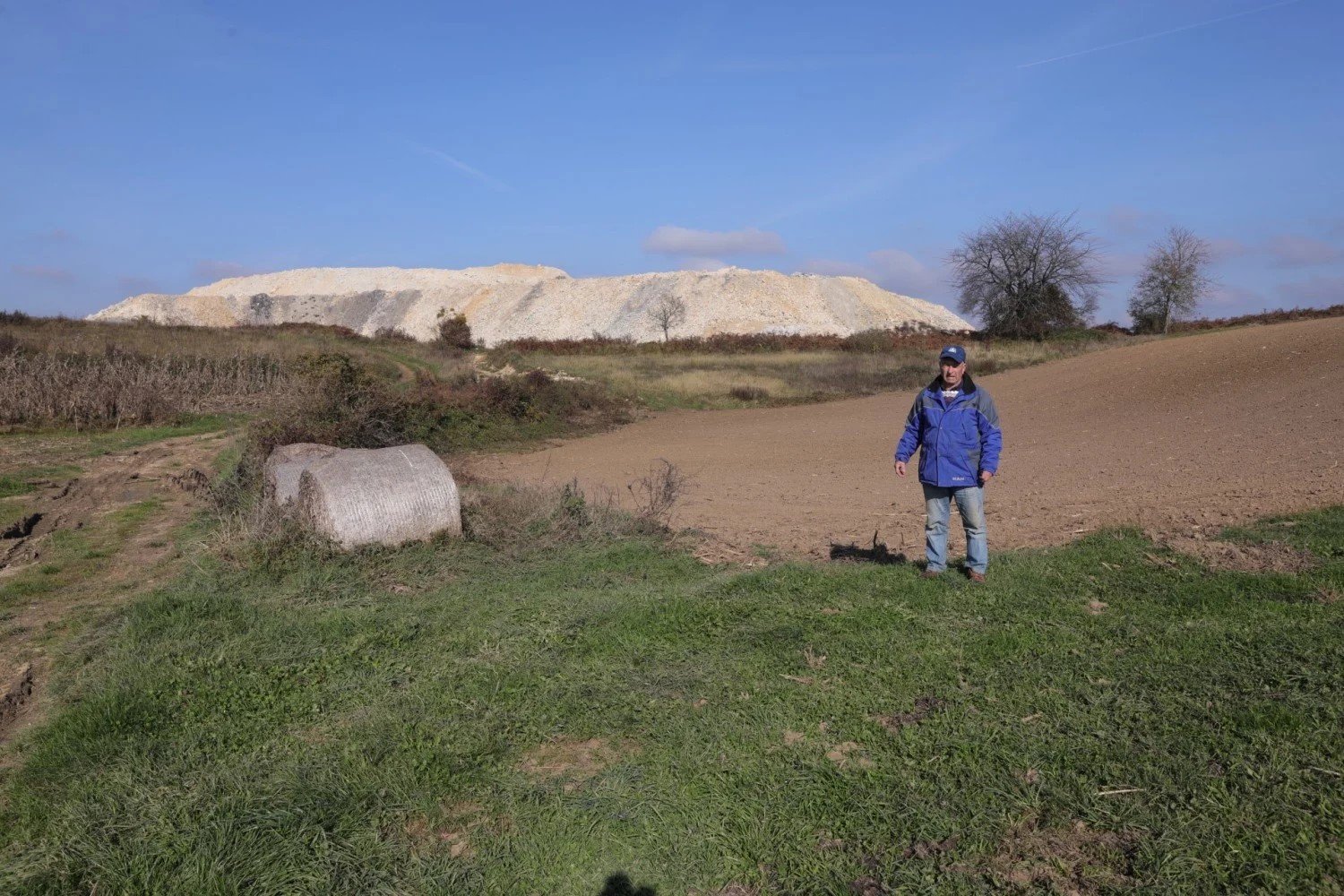
“These plots that we cultivate are destroyed—covered in dust that produces aflatoxin. We can’t cut it, feed it to livestock, or grow crops on these parcels. I’m forced to go 14 kilometres away to Luka Palanka to plant, abandoning our own land. Dust settles on the crops, on the grass, and on the clover mixes we plant for livestock", Tatarević explains.
In the villages around the mine, there are 20 farms producing milk, and all these farmers grow livestock feed on plots around the mine, Tatarević tells us, adding that, like him, they are all now worried about what the future holds.
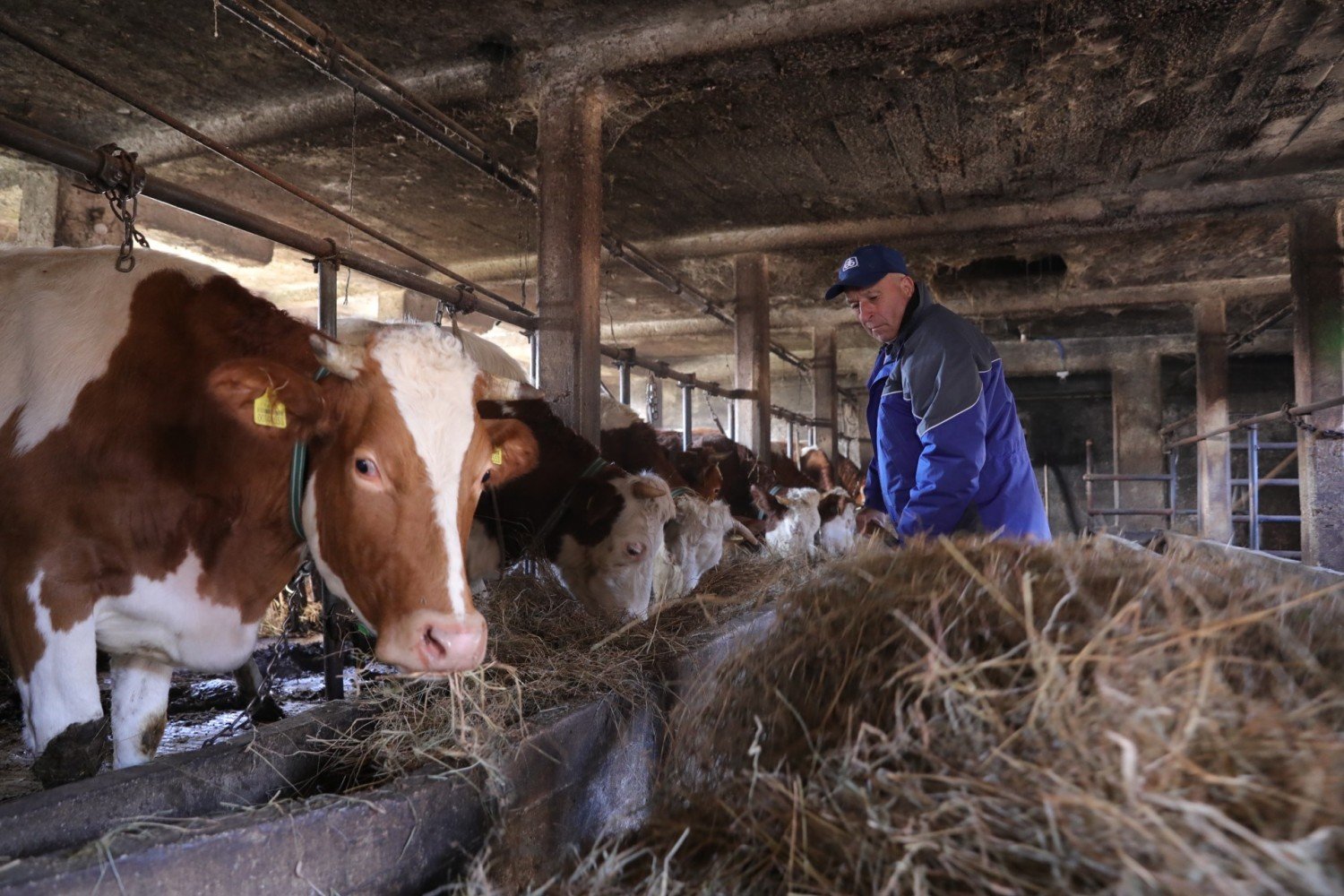
“We have about 20 farms here in Vakuf, Lukavica, Fajtovci, and Naprelje", Tatarević explains. “These are young men, 25 or 30 years old, my son included... They stayed here, registered their farms, pay taxes to the state, and are part of the VAT system. But we can’t stay here. They’re going to force us all out".
Near Tatarević’s plot, waste and tailings from the Lager mine are dumped, damaging the local environment. On the other side of a hill formed by mining excavations is the land of Šefik Horozović. Like Tatarević, he also refused to sell his land to Lager.
“I have two parcels; they approached me three times to sell... But I won’t give it up, no way. They’ve surrounded me, but I’m not giving in", says Horozović.
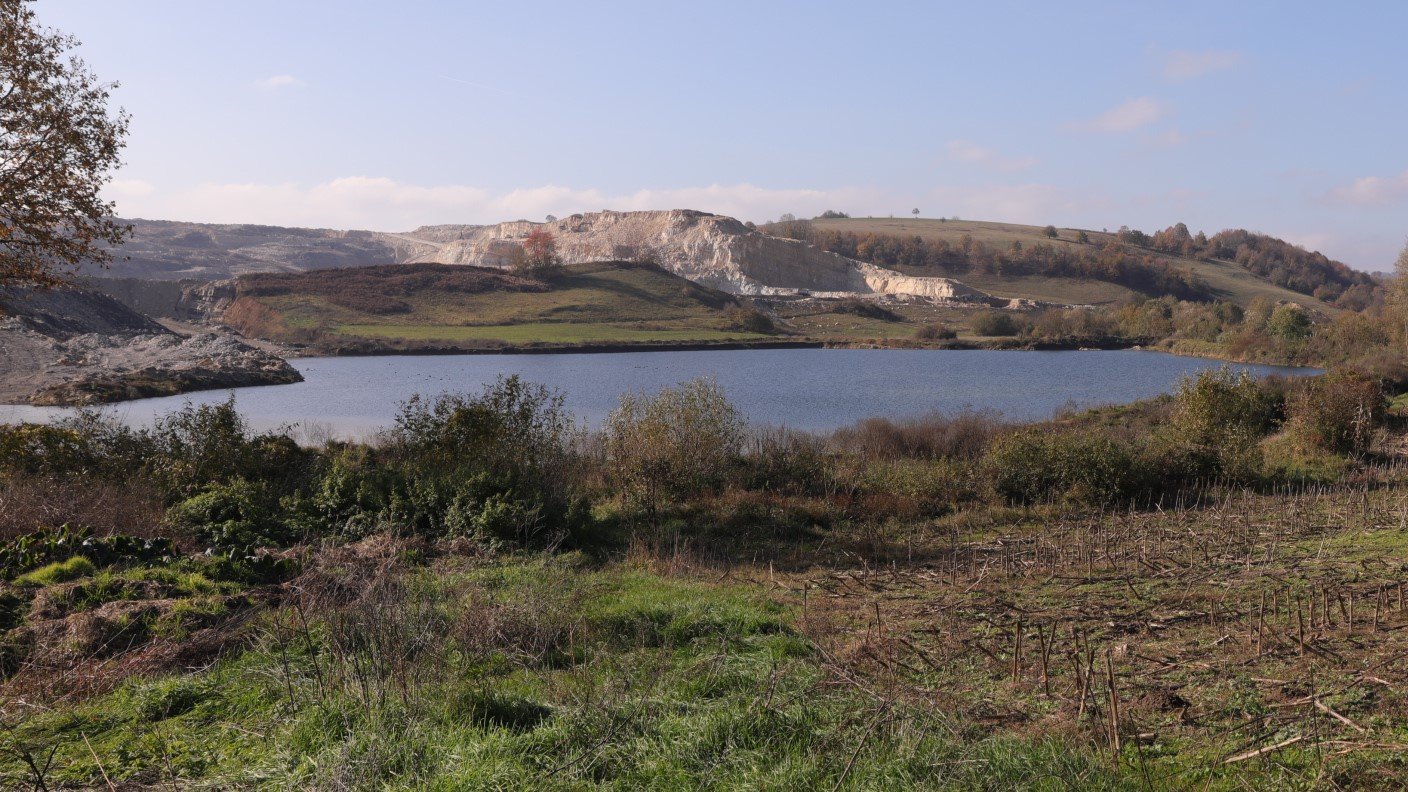
Residents who refuse to sell their land to Lager are now facing the consequences, Horozović explains, describing how they are gradually losing their property.
“They start dumping tailings on the hill, and when it spreads, it immediately takes over 2 or 3 dunums of someone else’s land... Who can you sue? Corruption runs all the way from Bihać to Sarajevo", says Horozović.
His own land was buried under tailings, and he was forced to block the road to get the company to clear his parcel. Near the mine, Horozović also owns a sawmill, and to avoid a similar situation to the one with his now-surrounded parcel, he had to buy additional land around it.
“I’ve now bought 50 more dunums to stop them from encroaching further. I spent 70,000 euros, but so be it. I have my pride too", says Horozović.
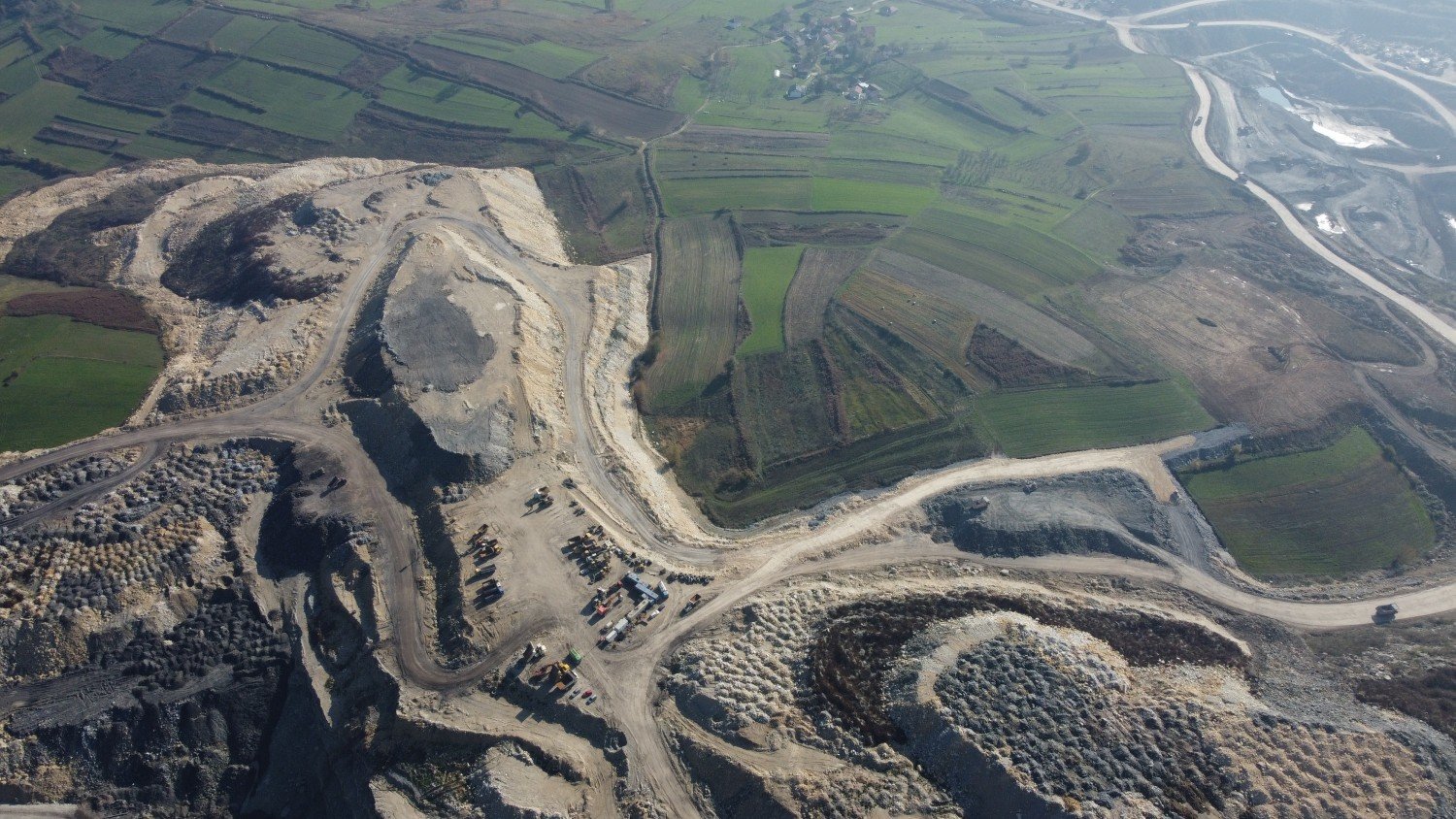
The frustration of local residents over the mine's operations is even greater when they attempt to report the damage to relevant authorities. They claim that none of the responsible officials, neither cantonal nor federal ministers, have ever visited the mine to see the situation firsthand. On the other hand, these officials assert that the mine operates within the law.
“They turn a blind eye and just write a report. You go to the police, and they tell you to go to the inspectorate. You go to the inspectorate, and they say call the canton. You go to the canton, and they say it’s not their jurisdiction, call Sarajevo. You call Sarajevo, and they’re not interested in what’s happening here. That’s why we suspect it’s all bribed, corrupt.."., Tatarević explains.
His frustration is shared by other residents as well.
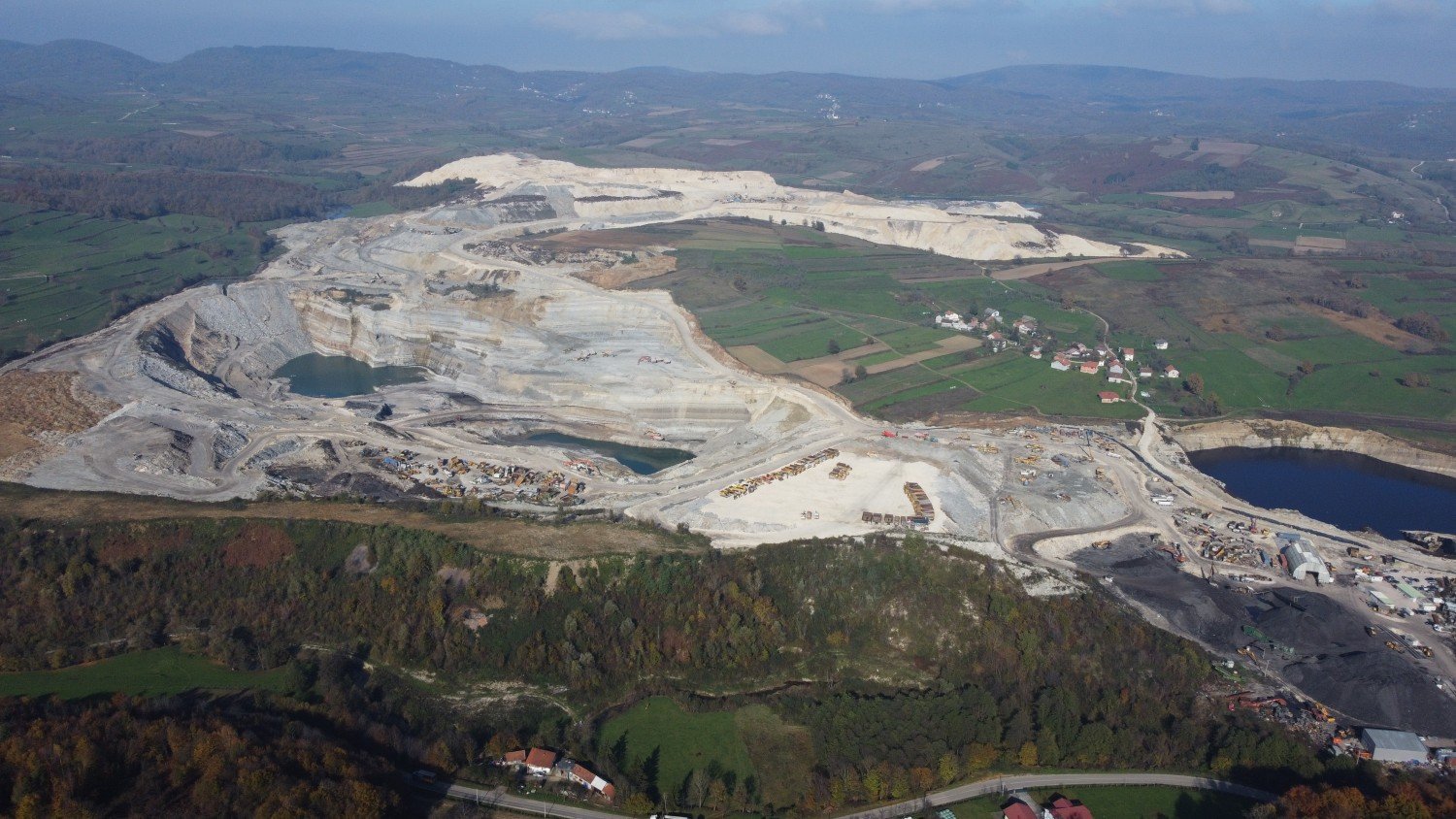
The irregularities in the mine's operations, along with the harm caused to residents, were also highlighted by the U.S. Ambassador to Bosnia and Herzegovina, who urged cantonal institutions to take action.
“This is a private company engaged in coal mining, which is harming local communities, polluting water sources, breaching its own concession agreements, and operating beyond the permitted scope", stated Ambassador Michael J. Murphy in a video message at the beginning of the year.
— US Embassy Sarajevo (@USEmbassySJJ) April 17, 2024
Despite this warning, the relevant institutions have largely ignored the problems affecting the residents of the dozen villages surrounding the mine. As cantonal and federal authorities continued to disregard their concerns, villagers near the Lager mine formed an informal citizen group called “Life on Coal – No to Exploitation That Endangers Life".
“There were some spontaneous gatherings, particularly by residents of the village of Gorice, in 2020 and 2021, when significant excavation began, and the concessionaire intensified efforts to persuade residents to sell their land. A documentary, “Bliha and Her People”, was even made to draw attention to the pollution of the Bliha River, land appropriation, and related issues", says Samir Cerić, an activist from Life on Coal.
In mid-2023, Life on Coal petitioned the Sanski Most Municipal Council to hold a special session on coal mining operations. Residents from Fajtovci, Gorice, Gornji Kamengrad with Vrše, Modra, Naprelje, Okreč, as well as the communities of Ćirkića-Podvič, Skuckani Vakuf, Lukavica, and Zenkovići, were especially concerned, as their villages are within or near the concession area.
In January of this year, as a result of the “Life on Coal” group's efforts, councillors unanimously voted to rescind the 2015 approval granted by the Sanski Most Municipal Council for the coal exploitation concession awarded to Lager. The Kamengrad Brown Coal Mine, where the mining is taking place, was privatised in 2013. Lager was awarded the coal mining concession in the area in 2015, covering more than a thousand hectares. Later, the then-FBiH Minister of Energy and Mining, Nermin Džindić, approved the transfer of exploitation rights from RMU Kamengrad to Lager.
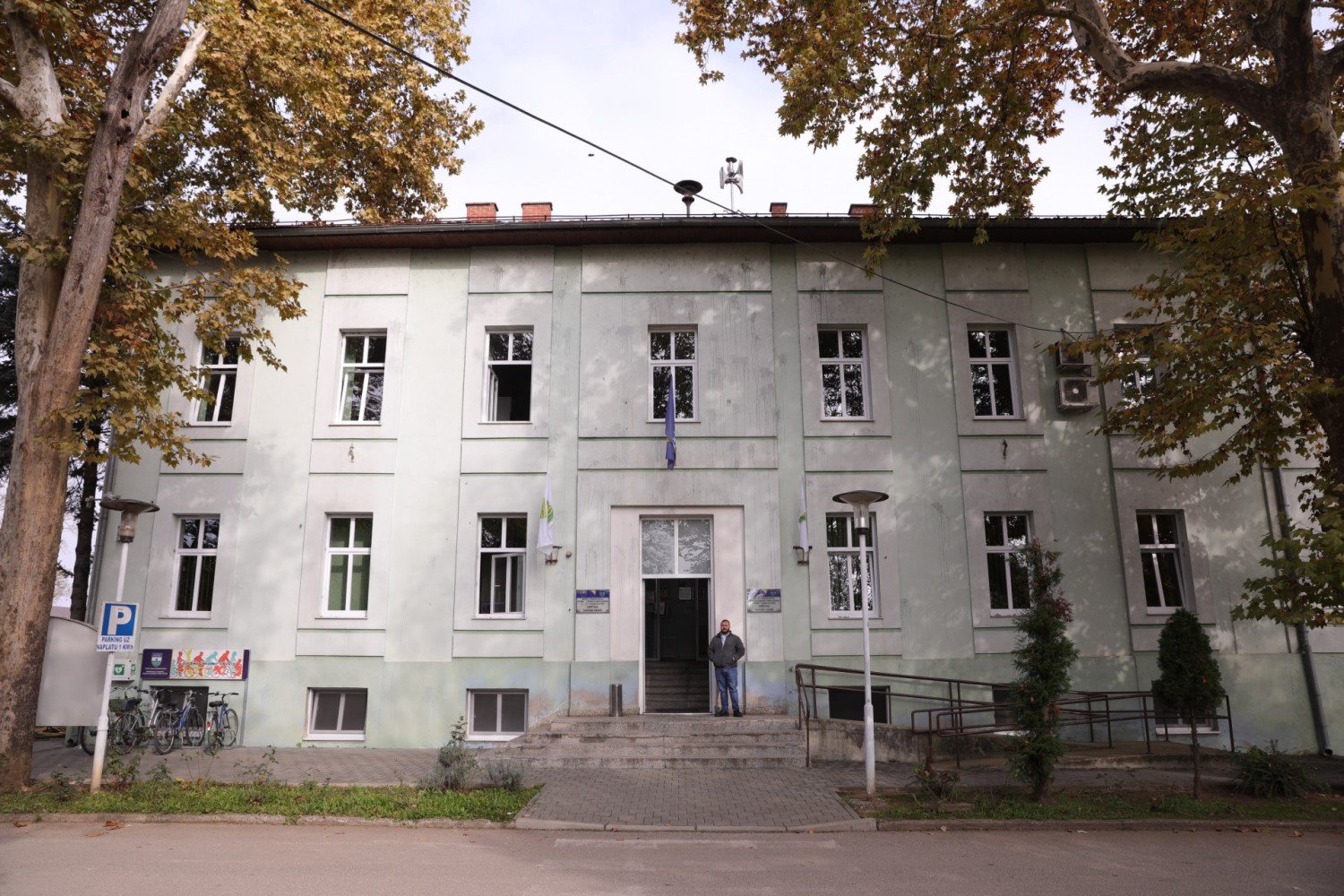
A request has been submitted to the Government of the Una-Sana Canton to annul the decision granting the concession to Lager and to authorise the Ministry of Economy to conclude a concession agreement. The request was also sent to the Federal Ministry of Energy, Mining, and Industry to annul the approval for the transfer of the exploitation permit to Lager. A response soon arrived from the Ministry of Economy of the Una-Sana Canton.
“Currently, there are no conditions to terminate the concession contract with the company Lager from Posušje, which is exploiting coal in the area of Sanski Most", stated Armin Kardašević, the Minister of Economy in the Una-Sana Canton Government.
Similarly, the Federal Ministry of Energy, Mining, and Industry also stated that at the time the request was submitted, Lager met all the conditions regarding the Concession Agreement.
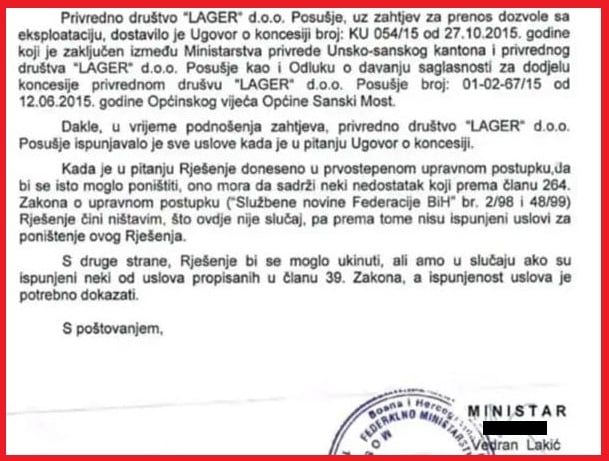
“When it comes to the decision made in the administrative procedure, for it to be annulled, it must contain a deficiency that makes the decision null and void, which is not the case here. Therefore, the conditions for annulment of this decision have not been met", said Vedran Lakić, the Federal Minister of Energy, Mining, and Industry.
In addition to the responses from the cantonal and federal ministries, the Sanski Most Municipal Council received a warning of potential legal action from Lager following the conclusions reached at their special session. The Municipality of Sanski Most did not respond to the Žurnal’s request for comment, and no response was received from Lager either.
Samir Cerić, an activist from the “Life on Coal” group, says that citizens expected these levels of government to take action, but nothing has been done so far.
“It is clear that there are irregularities—private property was entered before property rights were resolved, riverbeds were displaced, water was polluted, and the exploitation field was not marked... But to this day, the higher levels of government remain silent, and nothing is being done... During the seven months of 2022, they operated without an exploitation permit. That coal was purchased by the state-owned company Elektroprivreda", says Cerić, adding that this alone should be enough to terminate the concession agreement.
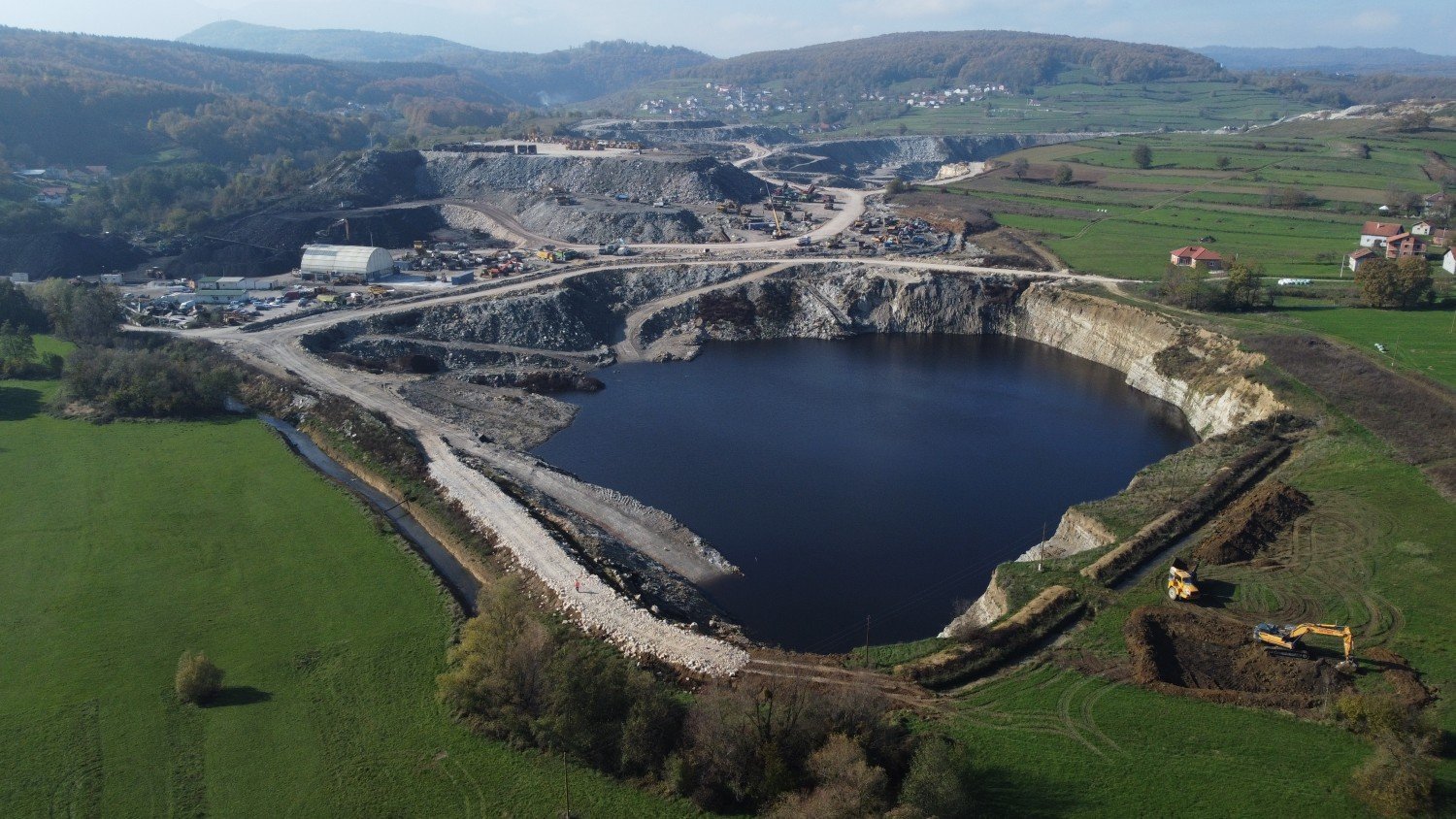
Cerić hopes that at least the representatives from Sanski Most in the Una-Sana Canton Assembly will raise these issues. Admir Velić, a councillor in the Sanski Most Municipal Council, told Žurnal that the Municipal Council can unfortunately do no more for the citizens. After the local elections, the new council members are still waiting to take their mandates. Velić hopes that the newly elected councillors will uphold the decisions made by the previous council and continue to stand by the citizens.
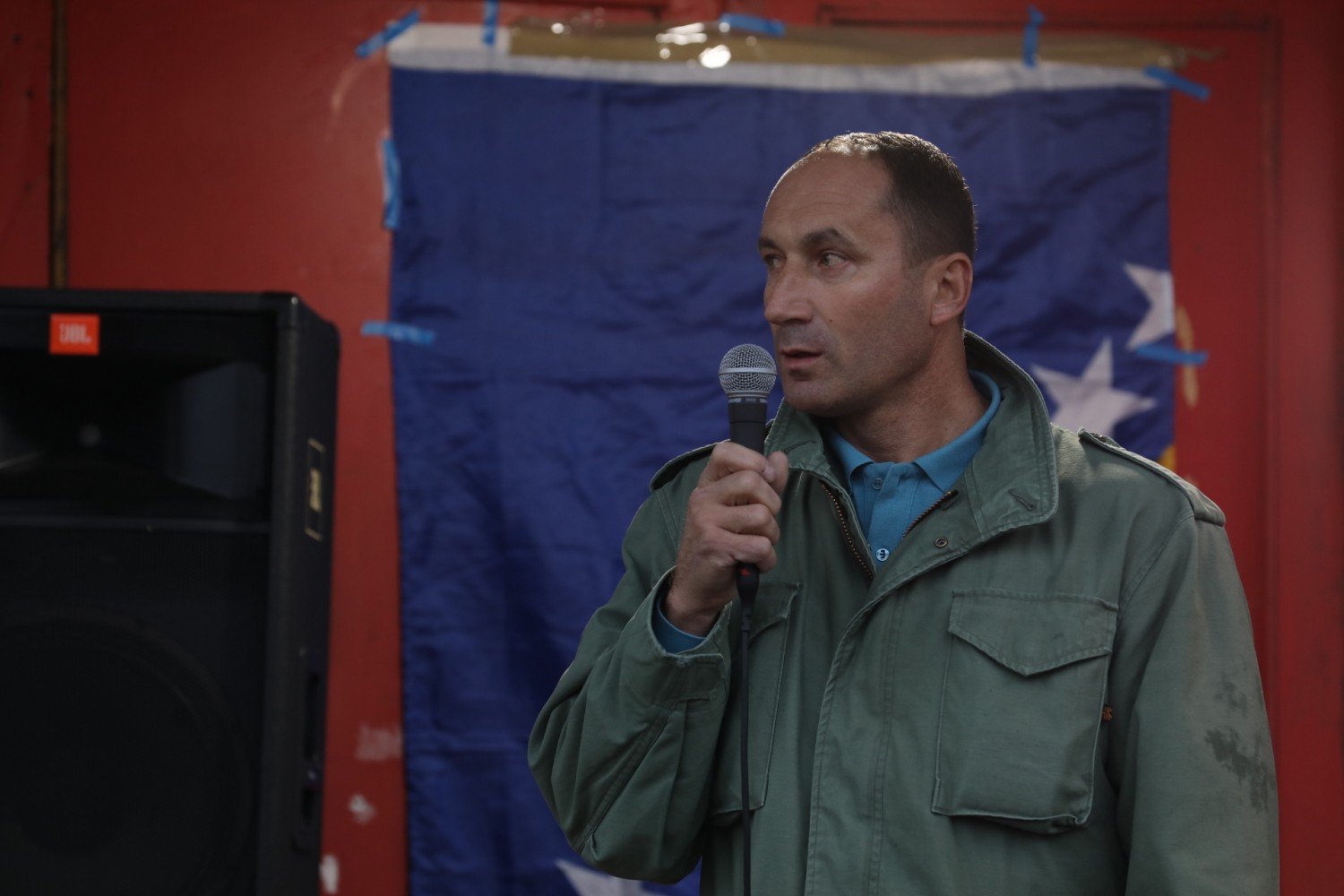
“Had it not been for that decision from 2015, this wouldn’t be happening now. I hope that a similar mistake will not be made again. I believe the new councillors will appreciate both their municipality and their resources, and will not look out for the interests of individuals or companies", said Velić.
Pollution of the Bliha Waterfall
During inspections carried out at the request of the Centre for Environment from Banja Luka, irregularities were identified in the operations of the Lager mine, which, through surface coal extraction, is polluting the Bliha River and its waterfall.
“The Bliha Waterfall has been under formal legal protection since 1954, and if the beauty of this waterfall has been preserved for 68 years, we must not allow it to be disrupted now for anyone's private interest", warned Sonja Kosanović, a lawyer at the Centre for Environment.
Following repeated requests for inspection and numerous complaints sent to the Federal Ministry of Environment and Tourism, the case concerning the fight for the Bliha River and its waterfall has also been brought before the Cantonal Court in Sarajevo and the Constitutional Court of Bosnia and Herzegovina. The Centre for Environment initiated an administrative lawsuit against the Federal Ministry of Environment and Tourism, following a decision by the Ministry to dismiss the request for renewing the environmental permit for the company LAGER Ltd. Posušje. The Ministry argued that this company no longer needs an environmental permit to continue extracting coal at the Zlauše-Martin location, near the Bliha River and its waterfall.
 Firma Lager ugrožava stanovništvo KamengradaAko bageri počnu da rade, ova brda počeće da lete!
Firma Lager ugrožava stanovništvo KamengradaAko bageri počnu da rade, ova brda počeće da lete!
Due to negligent actions that have resulted in several instances of Bliha River pollution, the competent inspection authorities have issued multiple fines to Lager. The Centre previously stated that this also constituted grounds for reconsidering and even revoking the environmental permit. However, the Ministry has not taken such actions. In response to a Žurnal inquiry, the Centre indicated that, unfortunately, administrative lawsuits before the Cantonal Court in Sarajevo can last up to three years, and they expect a decision in the next year.
"Given the situation, it is clear that judicial protection in environmental matters is not effective, meaning that the rule of ecological law in Bosnia and Herzegovina is inadequate. This particularly applies to recent trends in changes to regulations regarding mining activities, from changes in bylaws in the Federation of BiH to, for example, amendments to the Law on Geological Research in Republika Srpska. The situation where private concessions, mines, and projects even dictate the regulatory framework is completely incompatible with the international standards Bosnia and Herzegovina has committed to, including those related to human rights concerning the environment", said Redžib Skomorac from the Centre for Environment.
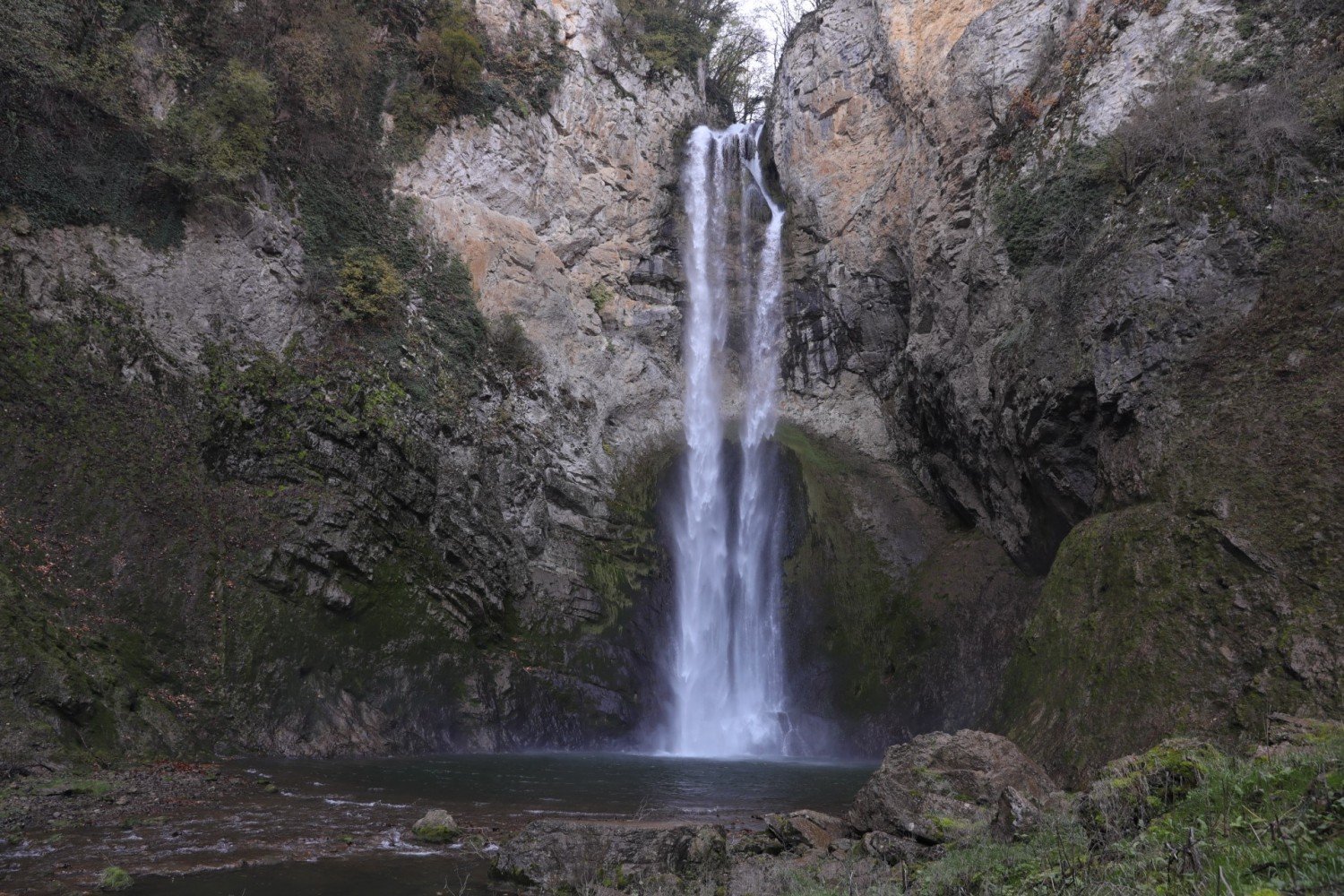
The Centre for Environment in Banja Luka reports that they attempted to initiate a review of the constitutionality of the decree that establishes which plants and facilities must have an environmental permit. Amendments to the decree have resulted in a situation where obtaining water permits essentially exempts mines from needing an environmental permit.
“When it comes to the Bliha River, it should be protected as it deserves. It’s not just a natural monument protected by the state, but also a tourist attraction visited by almost 100,000 people annually. When citizens call the inspection to investigate, they should do their job. We’ve heard from the citizens of Sanski Most that, according to their reports, inspections either don’t go to the field at all or only after significant public pressure. And even when they do, they only review the documentation without assessing the actual situation on-site. This should not be the case", said Dragan Ostojić from the Centre for Environment.
Despite numerous warnings from citizens, environmental organizations, and foreign diplomats, the Lager company maintains an excellent relationship with public enterprises. Recently, it signed a new contract with Elektroprivreda for a coal supply worth over 54 million BAM.
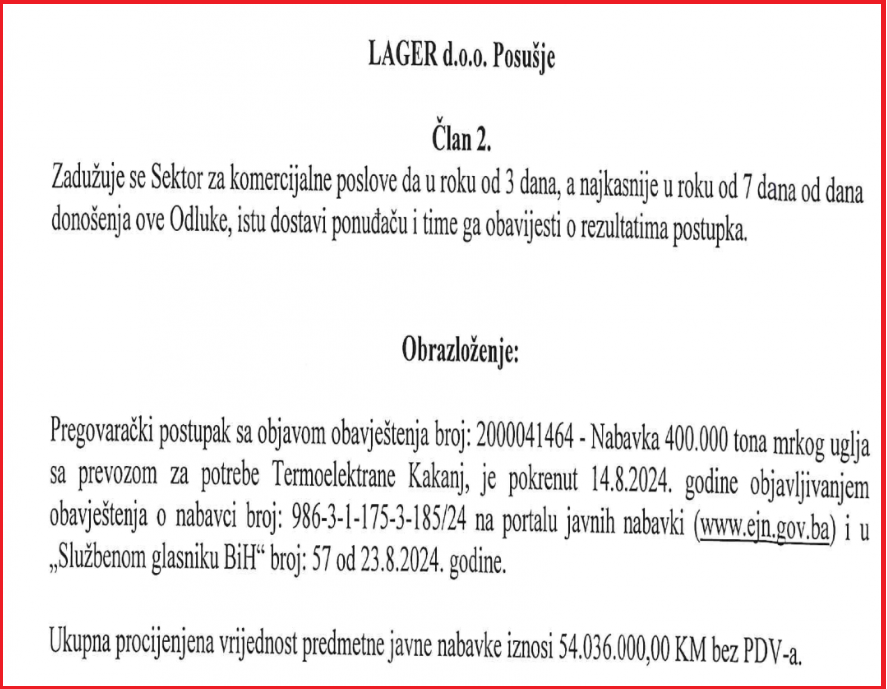
As previously reported, Elektroprivreda has been working successfully with Lager, even purchasing coal at a higher price than from its own mines. Last year, while a confirmed indictment for bribery was made against the owner and one of the directors of Lager in Croatia, the company expanded its operations in Bosnia and Herzegovina, partly due to its contracts with Elektroprivreda BiH.
Lager announced that it was increasing its business volume, opening a new production facility, and seeking 100 new workers, offering “high stimulating wages, indefinite contracts, bonuses, a 13th salary, stimulating awards, and unlimited earning potential". This business expansion didn’t surprise anyone, as just a year earlier, Lager won a tender from Elektroprivreda worth 105 million marks. In 2023, Lager received a contract worth over 70 million BAM from Elektroprivreda.
(zurnal.inf)






